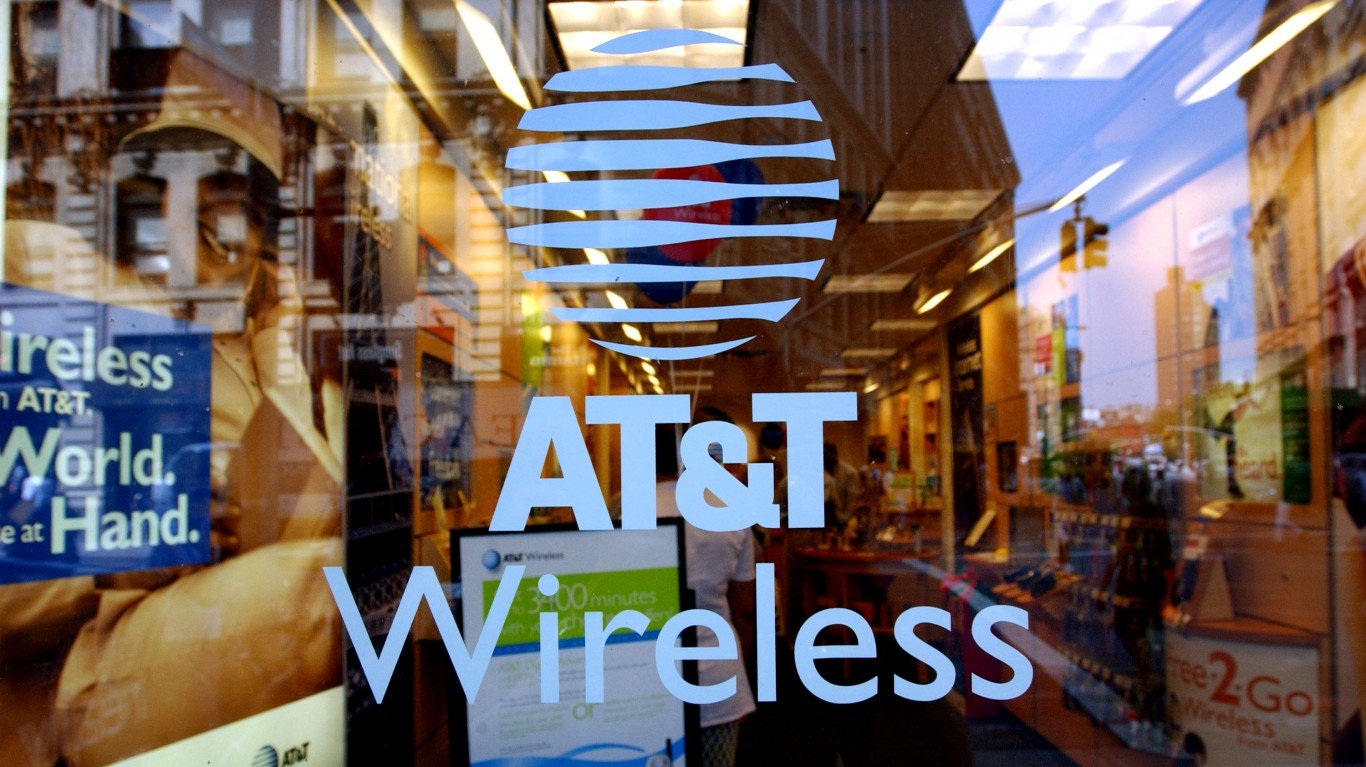

There is a maxim on Wall Street that essentially says, “20% of investors who want to make money are in stocks, while the 80% who want to keep their money are in bonds.” This was a broad, wide-brush description that attempted to summarize why the fixed-income market is so much larger than the equities market.
However, diversification is a fundamental principle that many investment advisors stress as a risk mitigation strategy. Dividend-paying stocks can be an attractive way for an investor to have one’s cake and eat it too; in addition to potential price appreciation, an annual dividend not only reduces an investment’s cost basis, but can also provide timely additional cash income, especially in the current inflationary climate.
The motivations of investors looking to invest in dividend stocks can vary across the spectrum. In rough terms, they can be divided into four (4) categories:
- Investors who seek to invest in Fortune 500 stocks for long-term growth but with an added income bonus component;
- Investors seeking capital preservation with a reliable income that compares favorably to bonds;
- Investors seeking high-yield junk bond alternatives in the dividend stock arena;
- Investors seeking industrial sector-based income streams (i.e., energy or real estate) with a lower cost entry point and better liquidity than what could be afforded with bonds.
Fortune 500 Stocks With an Income Bonus

Conservative stock investors often have a weak tolerance for the roller coaster prices of high-flying stocks that may soar only to crash and burn. The lower volatility of large cap stocks that are included in the S&P 500 or the Dow Jones Industrial Average 30 make for less sleepless nights and better peace of mind for these investors.
When appraising large cap stocks, a history of steady, or even better, increasing dividends is often an additional sign of earnings stability and continued future upside. The fact that a company has reached a rate of growth that allows it to pay back investors for their loyalty and support beyond its reinvestment needs for hitting growth targets holds considerable appeal to low-risk investors.
Additionally, large cap stocks that pay a dividend can get a positive bump in their CAGR (Compound Annual Growth Rate), which can make a difference if they are being assessed for potential inclusion in a mutual fund or ETF against other rivals in the same industrial sector. This is especially true when a dividend per share amount has a history of incremental increases over a span of years, and is calculated in a separate dividend CAGR metric.
Verizon Communications
One of the longtime analyst darlings among large cap, dividend paying stocks is Verizon Communications (NYSE:VZ).
As one of the premier telecommunications companies in the US, Verizon was formed in 2000 from the former “Baby Bell” companies, Bell Atlantic and Nynex, along with GTE. At the time of this writing, Verizon’s yield is 6.63% on an annual $2.66 dividend, paid quarterly. After an industry-wide selloff for all US telecom companies in mid-2023 over concerns about lead in their cables, Verizon has made a 30%+ price increase to its present levels.
From a dividend growth perspective, Verizon has logged 1.93% over 12 months, 1.97% over three years, 2.01% over five years, and 2.34% over a decade.
AT&T

According to Investopedia, Verizon’s extensive national network and plan flexibility makes it the largest U.S. wireless carrier. Although AT&T (NYSE:T) has the greater number of subscribers, Verizon, which ranks number 2 in subscribers, has a larger market cap ($168 billion vs. $120.7 billion).
On the cautionary side, the reduction in household landlines and cable service in favor of cellphones and video streaming has supercharged Verizon’s wireless services, which commensurately account for more than half of its revenues. As a result, Verizon has greater exposure to satellite problems or other wireless-related issues than its rivals.
Additionally, its high profile has drawn significant institutional stock ownership, which stands at about 62%, with 38% in the hands of only 25 shareholders. As a result, if, say Vanguard Group, which has a sizable 8% stake in Verizon, all of a sudden needed to liquidate a large block of shares, it makes for a larger impact jolt to the stock price than a selloff from smaller retail investors.
Nevertheless, Verizon’s FIOS optic fiber system is the core of its 5G network and they proudly advertise that it has been the recipient of the greatest number of consumer awards for customer satisfaction and internet speeds over the past decade. Among analysts’ publications, Morningstar still rates Verizon as its top-performing dividend stock as of January 2024.
Longtime competitor AT&T, which has a current yield of 6.58%, is a viable investment alternative to Verizon. It has a larger subscriber base with more hardwired customers and a wider distribution of low-band 5G coverage, albeit slower than Verizon’s FIOS 5G.
Income With Capital Preservation

Preservation of principal with income is a hallmark of bonds. Among the stocks that emulate these traits, preferred stocks often come the closest. Due to their higher dividend payments, they often trade in a more narrow range than their parent company common stocks. Additional bond-like attributes of preferreds include a “par” value redemption price by the issuing company, which may opt to “call” the security after a protection period, and an increased sensitivity to prevailing interest rates.
Features unique to preferred stocks may include a preset convertibility ratio option to common stock, no penalties in the event a dividend payment is skipped, and a preferential repayment place in queue should the company go bankrupt, which would be right after bondholders and ahead of common stockholders.
Global Ship Lease, Inc.
A good example of a solid preferred stock that has maintained a narrow price range and steady income dividend payments is British shipping company Global Ship Lease Inc. 8.75% Series B Cumulative Redeemable Perpetual Preferred Shares (NYSE: GSL.PB).
With a par amount of $25 and a historical trading range between $25 and $26, Global Ship Lease’s preferred stock currently is yielding 8.42% at a price of $25.92 at the time of this writing. Sporting a fleet of 65 smaller and mid-sized container ships, Global Ship Lease has a niche in the maritime shipping space that has grown its charter shipping business while only maintaining seven (7) full-time employees.
A.P. Moller Maersk

To illustrate the relative price stability of GLS.PB, A.P. Moller Maersk (OTCMKTS:AKMBY), one of the oldest and largest maritime shipping container companies in the world, had a 600% price fluctuation from March 2020 to December 2021, exacerbated during 2021, when the Suez Canal blockage from a stuck carrier created a global supply chain crisis. Since that runup, the stock has fallen back down 238% to its current price.
By contrast, Global Ship Lease preferred shares essentially stayed in the $25-$26 price range during the same period, and has maintained that steadfastness to the present.
In addition, the Federal Reserve’s raising of interest rates to combat inflation had a negligible effect on Global Ship Lease preferreds stock price, nor did it impact the dividend payments, something that cannot be said for some other preferred issues.
Conversely, geopolitical events can affect international shipping companies, and Global Ship Lease is not invulnerable. Analysts in general believe that if the Red Sea concerns over the war in Gaza were to be curtailed, shipping rates and the perception of other supply chain threats would also subside, causing a sell off of maritime shipping stocks that could impact a preferred stock like GLS.PB and create a dividend skip, something for investors to bear in mind.
Safe Bulkers, Inc.

An alternative company with a similar preferred stock that competes in the maritime space on a larger level is Monaco based Safe Bulkers, Inc. Preferred D (NYSE:SB.PD). Their 46 ship fleet includes 11 Panamax and 9 Kamsarmax vessels, and they specialize in dry bulk shipping of iron ore, coal and grain. With an 8% coupon, the preferred also currently trades steadily between $25-26 and its yield is presently 7.86%. Their Series C preferred has been called, but the D series should be around for a long time, unless Safe Bulkers gets a suddenly huge $80-100 million windfall that could finance a redemption.
High-Yield Dividend Stocks

Altria Group, Inc.
Investors who seek junk bond-like yields often take similar risks when seeking high-dividend stocks. However, there are some solid equities that coincidentally have a fat dividend that has ensured stockholder loyalty for years, and they also have significant institutional ownership that helps to keep their price protected from short sellers. One such example is Altria Group, Inc. (NYSE:MO).
With a 200-year history of selling tobacco products, Altria has weathered the negative publicity inherent with tobacco’s medical study links to lung cancer, nicotine addiction, and disfavor from the ESG policies of institutional funds. Nevertheless, Altria’s Marlboro is still an iconic, globally recognized American brand, and the company continues to meet or exceed analysts’ earnings forecasts, even in the wake of moderately reduced revenues.
With a 9.67% yield at the time of this writing, Altria Group is certainly in junk bond territory from a yield purview. From a dividend growth perspective, it is also helpful to note that the company has consistently increased dividends a whopping 54 times in 58 years, dating back from when it was Philip Morris, all the way to the present, with a 4.3% hike made just last year.
For further comparison, Altria Group 2019 issued notes, which mature in 2039 and carry a 5.8% coupon, are BBB-rated and are trading at roughly 102.50, meaning that their yields are nearly half that of the common stock. This is something that fixed-income investors, who have a much higher entry point than with the stock, are surely factoring into their portfolio allocation decisions.
Industry Specific Income Focused Dividend Stocks

The ETF and mutual fund markets for dividend stocks have proliferated significantly in the last few decades. Due to the high cost of entry for some industrial stocks, these pooled dividend stock funds have become very popular, and are now segmented by various categories, such as by market cap composition, yield, and industrial sector, to name a few.
Energy, transportation, telecommunications, mining, and technology are all industries that have well-known dividend-paying stocks within their sectors. One fundamental sector that has a prohibitively high entry point cost that has become very attractive for portfolios of all types is real estate. To gain access to real estate rent rolls without the intricacies and burdens of managing real estate properties, securities have been created that pool these rent rolls. Diversified ones, such as Real Estate Investment Trusts, or REITs are excellent, low-cost platforms for investors interested in this space. As registered trusts that distribute 90% of their taxable income to shareholders, they are legally exempt from Federal taxes.
Arbor Realty Trust
Arbor Realty Trust (NYSE:ABR) is a New York-based REIT that was formed in 2003. Unlike some other REITs where capital is invested in hard real estate assets, Arbor’s focus is in real estate collateralized financial products, such as mezzanine and bridge loans, multi-family mortgage loans, and other types of short and medium-term debt instruments.
Given that it is a REIT that trades on the New York Stock Exchange, Arbor Realty Trust has a high level of liquidity, especially when compared to brick-and-mortar real estate properties, or even individual debt instruments.
Sporting a 14.09% yield at the time of this writing, Arbor Realty Trust’s dividend has been growing at roughly 10.25% annually since 2011. With a dividend payout ratio of 88.85%, analysts’ consensus is that this is a sustainable rate, and would equate to dividend amounts for Arbor doubling in 7.1 years if uninterrupted.
Additionally, Arbor has some heavyweight institutional ownership participation, with Blackrock, Vanguard Group, State Street Corp., and Goldman Sachs among the top five largest shareholders.
While Arbor Realty Trust may certainly look attractive with its high yield and dividend growth history, there is a caveat:
China Evergrande Group

The meltdown of Chinese real estate goliath Evergrande (OTCMKTS: EGRNQ) is triggering repercussions across the globe not only in commercial and residential real estate markets, but also in a variety of financial sectors. As such, It remains to be seen as to the extent of its effect on companies like Arbor, which have less tangible assets on their books, and whose capital is more tied to financial products leveraged with real estate.
Global Net Lease, Inc.

For a REIT with the extra safety of a preferred stock, Global Net Lease, Inc. Preferred A (NYSE:GNL.PA) currently yields 8.62%. Also based in New York, the company manages commercial properties with a specialty niche in lease-buyback transactions. As the preferred stock is a relatively smaller item on Global Net Lease’s total balance sheet yet has priority over the regular REIT dividends, the likelihood of a skipped payment is drastically reduced, although this would entail minimal dividend growth.
Dividend stocks certainly offer features that suit the needs of a broad range of portfolio requirements. Investors have a variety of both individual stocks and funds from which they can choose, and should certainly engage in their own research before pulling the trigger on a particular security. For further insights into stocks with upside combined with dividends, see: 4 Analyst Favorite ‘Strong Buy’ Stocks With Dividends Likely Rising This Week
ALERT: Take This Retirement Quiz Now (Sponsored)
Take the quiz below to get matched with a financial advisor today.
Each advisor has been vetted by SmartAsset and is held to a fiduciary standard to act in your best interests.
Here’s how it works:
1. Answer SmartAsset advisor match quiz
2. Review your pre-screened matches at your leisure. Check out the advisors’ profiles.
3. Speak with advisors at no cost to you. Have an introductory call on the phone or introduction in person and choose whom to work with in the future
Take the retirement quiz right here.
Thank you for reading! Have some feedback for us?
Contact the 24/7 Wall St. editorial team.



